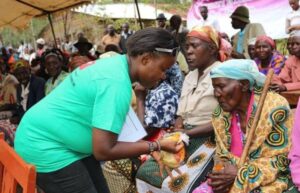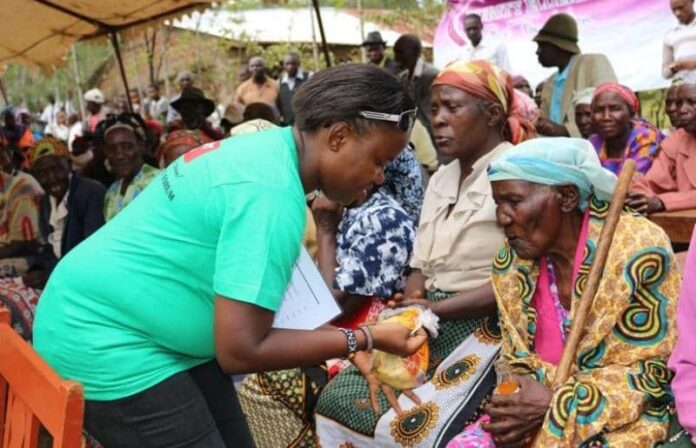By Burnett Munthali
As the world observes the United Nations Day for Older Persons today, the Zambian Human Rights Commission has expressed concern over the continued discrimination and abuse faced by senior citizens in many African countries, including Zambia.
The commission noted that older persons are often subjected to violence and even death, driven by deep-rooted superstitions, economically motivated rituals, and a lack of understanding of age-related conditions such as memory loss.

In Zambia, there have been reports of elderly individuals being targeted for traditional rituals, with perpetrators often exploiting myths that claim the body parts of senior citizens possess special powers.
Similar patterns have been observed in countries like Malawi, Tanzania, and South Africa, where harmful traditional practices, neglect, and domestic abuse have endangered the lives and dignity of older persons.
In response, the commission is calling for effective public awareness campaigns, the enactment of protective laws, and the rigorous enforcement of existing legislation aimed at preventing and punishing violations of the rights and dignity of the elderly.
For example, Zambia’s Anti-Gender-Based Violence Act provides legal recourse for abuse against vulnerable groups, including the elderly, though enforcement remains inconsistent, highlighting the need for strengthened implementation mechanisms.
This year’s United Nations International Day of Older Persons is being commemorated under the theme: “Older persons driving local and global action: Our aspirations, our well-being and our rights.”
Commission spokesperson Mweelwa Muleya highlighted that the theme emphasizes the transformative role older persons play in building resilient and inclusive societies, drawing on their invaluable knowledge and life experience.
Mr. Muleya further stated that senior citizens are a national heritage and must be treasured and protected from any form of harm.
He urged communities, governments, and civil society to recognize the contributions of older persons and to ensure their safety, well-being, and full participation in society.
Across Africa, various initiatives have been launched to protect the elderly. In South Africa, social support programs provide pensions, healthcare services, and legal assistance to older citizens, while Kenya has community-based elder care initiatives aimed at preventing isolation and abuse.
The Human Rights Commission’s call comes amid increasing reports of neglect, abuse, and harmful traditional practices targeting the elderly, underlining the need for urgent action to safeguard their rights.
Experts note that education campaigns, community vigilance, and stronger legal protections can significantly reduce elder abuse, while promoting respect for the elderly as custodians of knowledge and culture.
Observing the International Day of Older Persons serves as a reminder that societies thrive when older citizens are respected, empowered, and allowed to contribute to social, cultural, and economic development.
It is also an opportunity for governments and civil society organizations to evaluate existing policies, improve enforcement mechanisms, and collaborate with communities to protect the dignity and well-being of senior citizens.
*Economic and social value of older persons*
Beyond their social and cultural contributions, older persons play a critical economic role in African societies. They often provide childcare, mentorship, and informal support for households, allowing younger family members to engage in education or employment.
In rural areas, elderly farmers contribute to local food security through agricultural knowledge passed down through generations. They also participate in local governance structures, community conflict resolution, and traditional leadership, helping maintain social cohesion.
Protecting the rights and well-being of older citizens directly supports national development. Ensuring they have access to healthcare, pensions, and legal protection reduces dependency pressures on families, strengthens social safety nets, and enhances overall productivity.
Furthermore, empowering older persons to remain active in society fosters intergenerational knowledge transfer, innovation, and cultural continuity, creating stronger, more resilient communities.
Ultimately, safeguarding the rights of older persons is not just a moral imperative—it is an investment in sustainable development, social stability, and the long-term prosperity of African nations.



